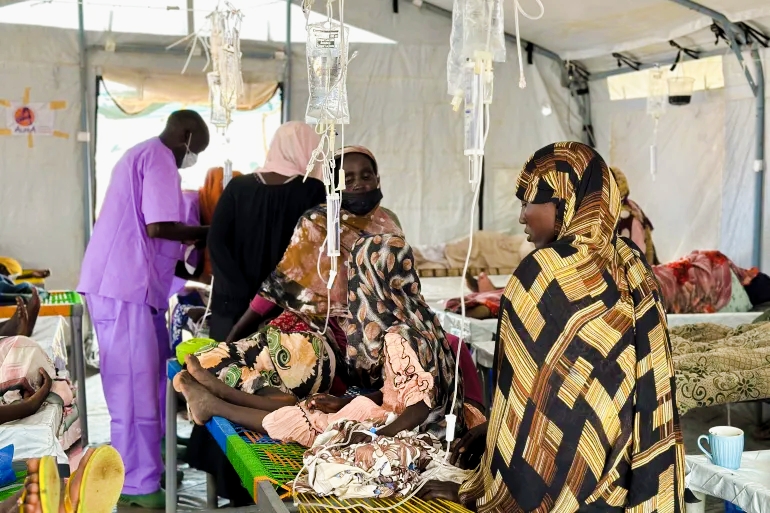Darfur Suffocates with Cholera .. and the Disaster is Greater than the Numbers
September 7, 2025107 ViewsRead Time: 2 minutes

Font Size:
16
The Coordination of Displaced Persons and Refugees in the Darfur region of western Sudan announced a serious escalation in the spread of cholera, with the cumulative number of infections rising to 10,297 cases since the onset of the disease, including 416 deaths.
In a new update released today, Sunday, the spokesperson for the coordination Adam Rijal stated that yesterday, Saturday alone, saw the registration of 270 new infections and 6 deaths, reflecting the continued spread of the infection at an alarming rate, amidst the deterioration of health and humanitarian conditions in the afflicted region.
Rijal confirmed that the Taloud area, which has received a large number of displaced persons fleeing from the city of El Fasher in recent weeks, is witnessing the highest infection rates in Darfur, with the number of recorded cases exceeding 5,000, while 78 deaths have been recorded so far.
He added that the health conditions in the region have become catastrophic, issuing an urgent call to the World Health Organization and international humanitarian organizations for immediate intervention and effective measures to contain the spread of the disease and save the lives of thousands of civilians at risk.
The cholera outbreak comes amidst the ongoing devastating war between the Sudanese army led by Abdel Fattah al-Burhan and the Rapid Support Forces led by Mohamed Hamdan Daglo (Hemedti), which erupted in April 2023.
This war has left tens of thousands dead and millions displaced, leading to a near-total collapse of health and humanitarian infrastructure in many areas, especially in the Darfur region.
Cholera is considered one of the serious infectious diseases; it is an acute intestinal infection usually transmitted through food or water contaminated with the "Vibrio cholerae" bacteria, and often spreads through human feces.
It causes severe diarrhea, vomiting, and muscle cramps, and can lead to death within hours if not treated quickly through oral or intravenous rehydration and antibiotics in severe cases.
The humanitarian response in Sudan remains below the required level, amidst logistical and security difficulties that hinder the delivery of aid, making the risk of famine and epidemics, primarily cholera, threaten millions, especially in conflict areas like Darfur.